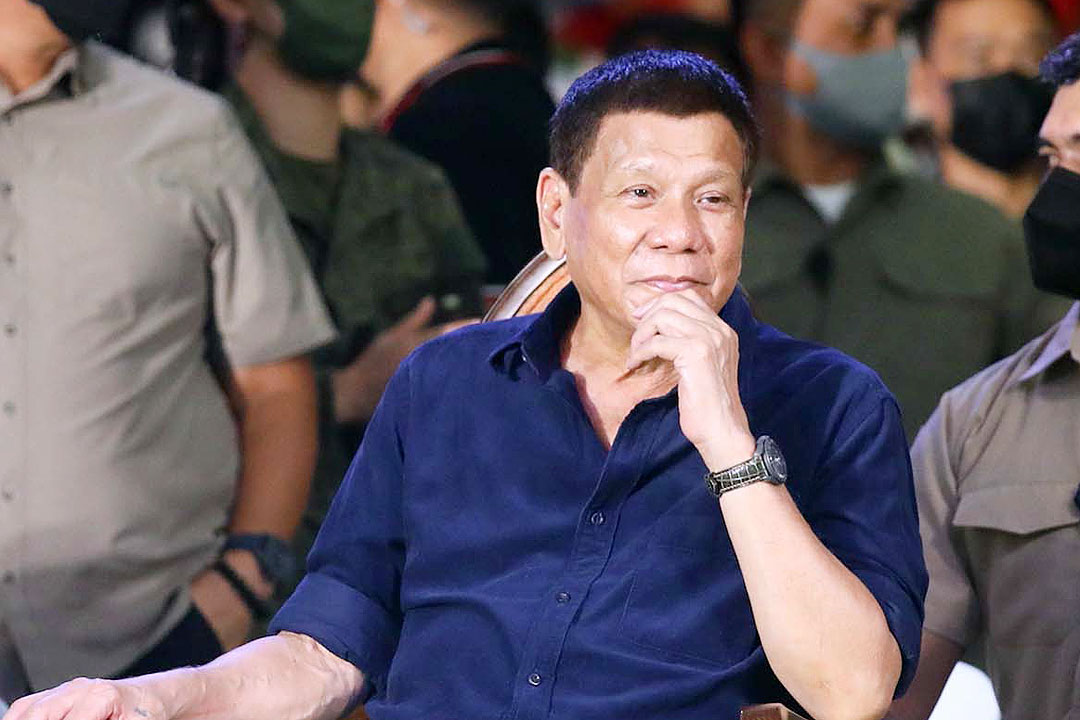Analysts: Gov’t shifting stance on ICC probe, may end up giving up Duterte

By John Victor D. Ordoñez, Reporter
THE GOVERNMENT of President Ferdinand R. Marcos, Jr. appears to be shifting its stance and would probably end up giving up his predecessor to investigators at the International Criminal Court (ICC) in connection with the Philippines’ deadly drug war, political analysts said at the weekend.
Mr. Marcos on Friday said his government is considering rejoining the ICC, which is investigating ex-President Rodrigo R. Duterte for alleged “crimes against humanity.”
“Should we return under the fold of the ICC? So that’s again under study,” he told reporters. “So we’ll just keep looking at it and see what our options are.”
Herminio “Harry” L. Roque, Mr. Duterte’s lawyer and former spokesman, did not immediately reply to a Facebook Messenger chat seeking comment.
“It seems that this latest action initiated by the House majority is the cue that signals the shift in the position of the Marcos government regarding the ICC issue,” Ephraim B. Cortez, president of the National Union of Peoples’ Lawyers (NUPL), said in Viber message.
Manila Rep. Bienvenido M. Abante, Jr., Party-List Rep., France L. Castro and Albay Rep. Edcel C. Lagman earlier filed separate resolutions urging the state to cooperate with the ICC probe.
Mr. Cortez also expects opposition senators to follow suit.
Mr. Marcos had ruled out cooperation with the international court, saying its probe violates Philippine sovereignty given the country’s fully functional justice system.
Mr. Duterte withdrew Philippine membership in the ICC in 2018.
Last week his daughter, Vice-President Sara Duterte-Carpio said allowing the ICC to probe crimes committed in her father’s deadly war on drugs would undermine the Philippine justice system.
Senator Maria Imelda “Imee” R. Marcos, the President’s sister, has said the government should not cooperate with the ICC since the country’s justice system is functioning.
“In the same vein, the Senate, which has a national constituency, should know the sentiments on the ground,” Maria Kristina C. Conti, NUPL secretary-general in Metro Manila and legal counsel for several victims of the drug war, said in an e-mail. “People support an investigation into the war on drugs.”
“Politics aside, it hinges upon our collective hope for justice, trust in government and its systems, and a sense of security in our houses and selves,” she added.
The ICC in January reopened its probe of the Duterte government’s anti-illegal drug campaign, saying it was not satisfied with Philippine efforts to probe human rights abuses during the period.
The court rejected a Philippine plea to suspend its probe of the drug war in July, paving the way for the ICC prosecutor to later indict and order the arrest of local officials who aided the campaign.
“Now that Duterte is no longer in power and a new President is in place, as well as shifting alliances and allegiances, the legislators are making strategic moves,” Maria Ela L. Atienza, who teaches political science at the University of the Philippines, said in a Viber message.
“It’s better late than never for politicians interested in saving their skins and siding with what is currently popular.”
The Philippine Justice department has said the international tribunal is undermining the government’s sovereignty by continuing its probe of Mr. Duterte’s drug war.
The Philippines has accepted 200 recommendations from the United Nations (UN) Human Rights Council, including investigating extralegal killings and protecting journalists and activists.
The UN Human Rights Committee has said the Philippines should comply with international human rights mechanisms and cooperate with the ICC’s drug war probe.
The Commission on Human Rights (CHR) has said the Duterte administration had encouraged a culture of impunity by hindering independent probes and failing to prosecute erring cops.
It said it would cooperate with the ICC’s probe of extralegal killings under Mr. Duterte.
At least 6,117 suspected drug dealers were killed in police operations, according to data released by the Philippine government in June 2021. Human rights groups estimate that as many as 30,000 suspects died.
“These politicians must listen to the people,” Ms. Conti said. “The clamor for justice has refused to die down with the passing of time because there has been no substantial or acceptable response from those responsible for it.”



